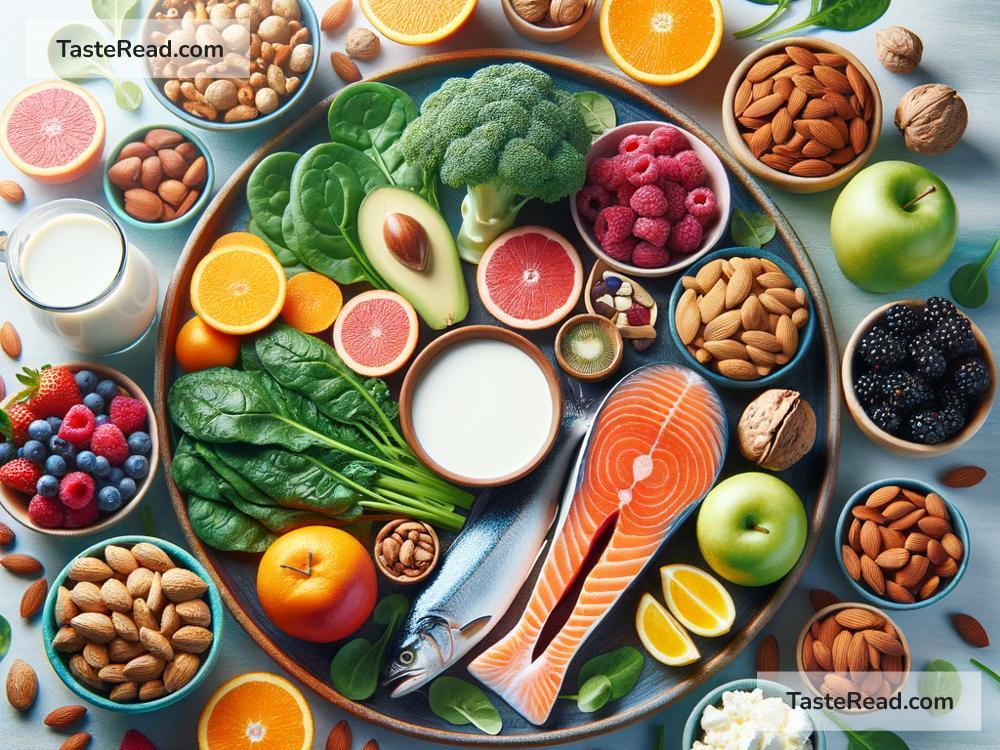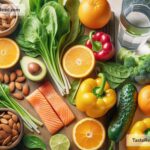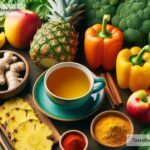Foods That Reduce the Risk of Scoliosis: Eating Your Way to a Healthier Spine
Scoliosis is a condition where the spine curves sideways, often leading to pain, discomfort, and reduced mobility. While it is primarily caused by genetic factors, growth spurts during adolescence, or underlying medical conditions, maintaining good overall health is important for people looking to prevent or minimize the severity of scoliosis. One way to support spinal health is through a balanced diet that promotes strong bones, muscles, and ligaments.
Although there is no guaranteed “magic food” to prevent scoliosis, eating certain nutrients can help keep your spine healthy and reduce the risk of complications. Let’s explore how nutrition can play an important role in scoliosis prevention and management.
1. Calcium for Stronger Bones
Calcium is the building block of your bones. In scoliosis, weakened or underdeveloped bones may contribute to spinal curvature. Eating foods rich in calcium can help make your skeletal system stronger and more resistant to degeneration or injury.
Foods rich in calcium include:
– Dairy products: Milk, cheese, yogurt
– Leafy greens: Kale, spinach, broccoli
– Fortified foods: Tofu, almond milk, orange juice
– Nuts and seeds: Almonds, sesame seeds
Teenagers and children need extra calcium during their growth spurts, as their bones are developing quickly. A lack of calcium early on can lead to weaker bones that may worsen scoliosis symptoms later in life.
2. Vitamin D: The Calcium Helper
Vitamin D is crucial for your body to absorb calcium effectively. Without enough vitamin D, the calcium you get from food won’t do its job correctly. Ensuring adequate levels of vitamin D can strengthen bones and support a healthy spine.
How to get vitamin D:
– Sunlight: Spend time outdoors for natural vitamin D production.
– Foods: Fatty fish (like salmon and tuna), eggs, mushrooms, and fortified cereals/milk.
– Supplements: If you struggle to get enough vitamin D, consult your doctor about supplements.
Vitamin D deficiency can lead to brittle bones, which increases injury risk and potentially worsens scoliosis progression.
3. Magnesium and Phosphorus for Bone Health
Magnesium and phosphorus work with calcium to support strong and flexible bones. Magnesium improves calcium absorption, while phosphorus helps build sturdy bone tissue. Deficiencies in these nutrients can weaken your skeleton over time.
Foods rich in magnesium:
– Bananas
– Whole grains (brown rice, oatmeal)
– Nuts and seeds (pumpkin seeds, sunflower seeds)
– Avocados
Foods rich in phosphorus:
– Meat and fish (chicken, beef, salmon)
– Eggs
– Dairy products
– Lentils and beans
Together, these minerals ensure that your bones stay healthy enough to resist structural problems like scoliosis.
4. Protein to Build Muscle and Support Posture
Protein is essential for building and repairing muscles, especially those that support your spine. Strong back and core muscles can help stabilize the spine and reduce the likelihood of scoliosis worsening over time. Protein also aids in recovery after injuries.
Great sources of protein include:
– Lean meats (chicken, turkey)
– Fish (salmon, tuna)
– Eggs
– Beans and legumes (chickpeas, lentils)
– Dairy products (milk, cheese, yogurt)
– Plant-based alternatives (tofu, tempeh, quinoa)
For scoliosis patients or those at risk, combining protein with exercises that strengthen back muscles can make a big difference.
5. Anti-Inflammatory Foods to Reduce Pain
If you already have scoliosis, inflammation can make the condition worse by causing pain and stiffness. Incorporating anti-inflammatory foods into your diet may help control these symptoms and improve mobility.
Here are some anti-inflammatory foods:
– Fruits: Berries (blueberries, strawberries), oranges, cherries
– Vegetables: Spinach, kale, broccoli, sweet potatoes
– Healthy fats: Olive oil, avocados, nuts
– Fish: Salmon, mackerel (rich in omega-3 fatty acids)
– Spices: Turmeric, ginger, garlic
Anti-inflammatory foods can reduce pain and improve your overall quality of life, especially if you suffer from scoliosis complications.
6. Foods That Promote Collagen Production
Collagen is the main protein that makes up your ligaments, tendons, and cartilage. For those with scoliosis, strong connective tissues can help stabilize the spine and reduce strain on the back.
Collagen-rich or collagen-boosting foods include:
– Bone broth
– Citrus fruits (oranges, lemons, grapefruits)
– Leafy greens
– Fish and chicken
– Tomatoes
Vitamin C, found in many fruits and vegetables, helps your body produce collagen naturally.
7. Avoid Processed Foods and Excess Sugar
While focusing on foods that benefit spinal health, it’s equally important to avoid foods that can weaken bones or promote inflammation. Processed foods, sugary snacks, and fizzy drinks can deplete essential nutrients like calcium and magnesium, making your bones and muscles weaker.
Opt for fresh, whole foods whenever possible. This simple adjustment to your diet can make a big difference for your overall health, including your spine.
Final Thoughts
While scoliosis is often out of our control, eating a nutrient-rich diet can be a powerful tool for preventing risk factors or managing symptoms. Focus on foods that strengthen bones, support muscle health, and reduce inflammation. If you pair a healthy diet with regular exercise, good posture, and proper medical care, you’ll be giving your spine the best chance to stay healthy.
Remember, your food choices matter—not just for your general well-being but for the health of your spine. So load up your plate with calcium, vitamin D, magnesium, and anti-inflammatory ingredients. Your spine will thank you!


